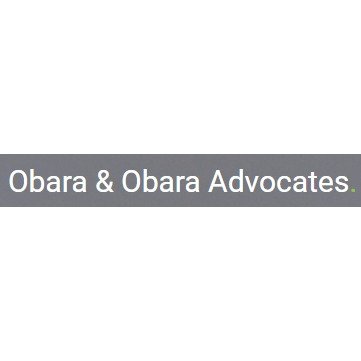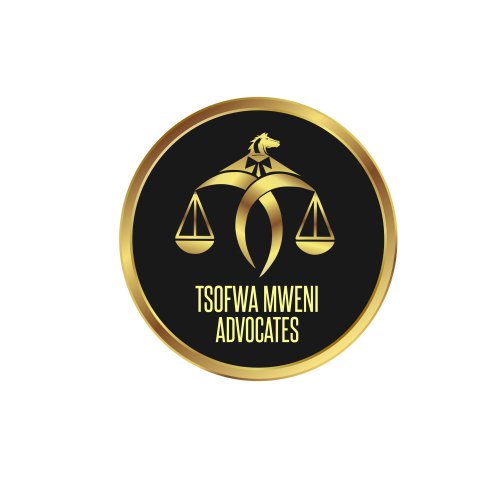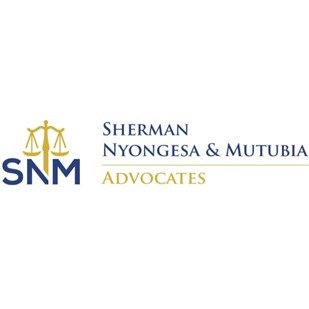Best Banking & Finance Lawyers in Mombasa
Share your needs with us, get contacted by law firms.
Free. Takes 2 min.
List of the best lawyers in Mombasa, Kenya
Legal guides written by Adroit Law LLP:
- Kenya Launches Digital Nomad Visa: A Gateway for Remote Workers
- Navigating the Payment System License Maze in Kenya
- Navigating the Complexities of Mining Licenses and Permits in Kenya: A Look into Artisanal and Large-Scale Operations
About Banking & Finance Law in Mombasa, Kenya
Banking & Finance Law in Mombasa, Kenya is a specialized area of legal practice that deals with the rules and regulations governing financial institutions and transactions. It encompasses various aspects such as banking regulations, lending practices, securities laws, and consumer protection.
Why You May Need a Lawyer
There are several situations where you may need legal help in Banking & Finance in Mombasa, Kenya. Some common examples include:
1. Disputes with financial institutions: If you have a disagreement with a bank, lender, or other financial institutions regarding issues such as loan agreements, interest rates, or debt collection, a lawyer can help protect your rights and negotiate a resolution.
2. Investment-related issues: When it comes to investments, legal advice may be necessary to understand complex regulations and ensure compliance. A lawyer can guide you through investment transactions, analyze contracts, and protect your interests.
3. Foreclosure or bankruptcy: If you are facing foreclosure or bankruptcy due to financial difficulties, a lawyer can assist you in navigating the legal processes, protecting your assets, and exploring possible alternatives.
4. Fraud or financial scams: If you suspect fraudulent activities or have fallen victim to a financial scam, a lawyer can help you gather evidence, report the incident to authorities, and seek legal remedies.
5. Regulatory compliance: For businesses operating in the banking and finance sectors, it is crucial to ensure compliance with the ever-changing regulatory landscape. A lawyer can provide guidance on regulatory compliance, risk management, and the development of internal policies and procedures.
Local Laws Overview
In Mombasa, Kenya, several key aspects of local laws are particularly relevant to Banking & Finance. These include:
1. The Banking Act: This legislation governs the establishment, licensing, and operation of banks and financial institutions in Kenya. It also outlines the duties and responsibilities of banks towards their customers.
2. The Central Bank of Kenya Act: This law establishes the Central Bank of Kenya (CBK) and grants it regulatory and supervisory powers over banks, foreign exchange, and monetary policy. The CBK plays a crucial role in maintaining stability in the banking sector.
3. The Capital Markets Act: This act regulates securities transactions, investment advisors, and collective investment schemes. It aims to protect investors and ensure the efficient operation of the capital markets in Kenya.
4. The Consumer Protection Act: This legislation provides safeguards for consumers in financial transactions, ensuring fair treatment, transparency, and disclosure of terms and conditions.
5. The Insolvency Act: This act governs bankruptcy and insolvency proceedings, outlining the procedures and mechanisms for the resolution of financial distress or the winding up of companies.
Frequently Asked Questions
1. Are there any restrictions on foreign investment in the banking sector in Mombasa, Kenya?
No, foreign individuals and entities can invest in the banking sector in Mombasa, Kenya. However, they must comply with the licensing requirements and regulations set forth by the Central Bank of Kenya.
2. How can I protect myself from financial scams and fraudulent schemes?
To protect yourself from financial scams and fraudulent schemes, it is essential to be vigilant and exercise caution. Verify the legitimacy of financial institutions, investment opportunities, and individuals before engaging in any transactions. If in doubt, seek advice from a trusted lawyer or report suspicious activities to the relevant authorities.
3. What steps can I take if my bank has charged excessive fees or engaged in unfair practices?
If you believe your bank has charged excessive fees or engaged in unfair practices, start by filing a complaint with your bank's customer service department. If the issue remains unresolved, you can escalate the matter to the Central Bank of Kenya or seek legal advice to explore potential legal remedies.
4. How can I ensure compliance with banking regulations for my business in Mombasa, Kenya?
To ensure compliance with banking regulations, it is advisable to seek legal assistance. A lawyer can help you understand the specific requirements, develop internal policies and procedures, conduct regular compliance audits, and keep up with any regulatory updates or changes.
5. Can I negotiate the terms of a loan agreement with a bank or lender?
Yes, in most cases, it is possible to negotiate the terms of a loan agreement with a bank or lender. However, the extent of negotiation flexibility may vary depending on various factors such as your creditworthiness, the loan amount, and the lender's policies. Seeking legal advice can help you understand your negotiating power and protect your interests in the negotiation process.
Additional Resources
For further assistance and information related to Banking & Finance in Mombasa, Kenya, you may find the following resources helpful:
- Central Bank of Kenya (CBK): The official website of the Central Bank of Kenya provides valuable information on banking regulations, monetary policy, and consumer protection.
- Capital Markets Authority (CMA): The CMA website offers insights into capital markets regulations, investor education, and licensing requirements for securities industry professionals.
- Mombasa Law Society: The Mombasa Law Society represents lawyers practicing in Mombasa and can provide referrals to reputable legal professionals specializing in Banking & Finance.
- Kenya Bankers Association (KBA): The KBA is an industry association representing banks in Kenya. Their website offers resources related to banking, finance, and industry updates.
Next Steps
If you require legal assistance concerning Banking & Finance in Mombasa, Kenya, here are some suggested steps to consider:
1. Identify your specific legal need or concern: Determine the nature of your issue, whether it involves disputes with a financial institution, investment-related matters, regulatory compliance, or other aspects of Banking & Finance.
2. Research reputable lawyers or law firms: Look for lawyers or law firms in Mombasa with experience and expertise in Banking & Finance Law. Consider factors such as their track record, client reviews, and specialization in the relevant areas.
3. Schedule a consultation: Contact the selected lawyer or law firm to schedule an initial consultation. This meeting will allow you to discuss your situation, seek legal advice, and assess if the lawyer is the right fit for your needs.
4. Evaluate your options: Based on the consultation, evaluate the lawyer's proposed strategies, potential outcomes, and cost estimates. Consider obtaining multiple opinions if needed.
5. Engage a lawyer: Once you have chosen a lawyer, discuss and agree on the terms of engagement. Ensure that you fully understand the fee structure, timelines, and any other relevant details before proceeding.
Remember, it is important to maintain open communication with your lawyer throughout the legal process and provide them with all necessary information to effectively represent your interests.
Lawzana helps you find the best lawyers and law firms in Mombasa through a curated and pre-screened list of qualified legal professionals. Our platform offers rankings and detailed profiles of attorneys and law firms, allowing you to compare based on practice areas, including Banking & Finance, experience, and client feedback.
Each profile includes a description of the firm's areas of practice, client reviews, team members and partners, year of establishment, spoken languages, office locations, contact information, social media presence, and any published articles or resources. Most firms on our platform speak English and are experienced in both local and international legal matters.
Get a quote from top-rated law firms in Mombasa, Kenya — quickly, securely, and without unnecessary hassle.
Disclaimer:
The information provided on this page is for general informational purposes only and does not constitute legal advice. While we strive to ensure the accuracy and relevance of the content, legal information may change over time, and interpretations of the law can vary. You should always consult with a qualified legal professional for advice specific to your situation.
We disclaim all liability for actions taken or not taken based on the content of this page. If you believe any information is incorrect or outdated, please contact us, and we will review and update it where appropriate.
Browse banking & finance law firms by service in Mombasa, Kenya
Mombasa, Kenya Attorneys in related practice areas.

















